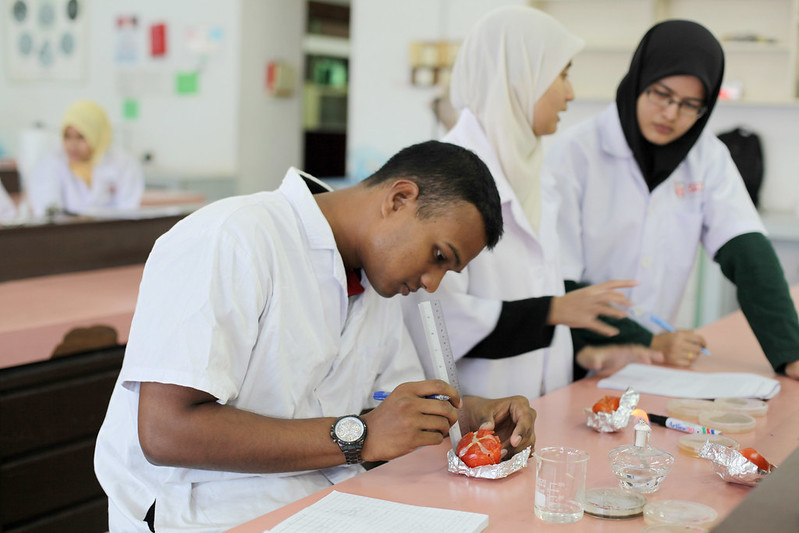Restructuring vocational training a top issue in Malaysia
The National Association of Skilled Workers slams the Malaysian government for not doing enough to get high school graduates into vocational training to meet the needs of local industry. For the country’s deputy prime minister, the government has a plan to coordinate Malaysia's 1,260 vocational schools to eliminate competition and improve training. The UN development goals include “inclusive and equitable quality education”.
Kuala Lumpur (AsiaNews) – A major Malaysian association has accused the government of not doing enough to promote technical and vocational education and training (TVET) among the country's youth; however, official sources say that restructuring of TVET programmes is underway with the aim of improving training offers.
Free Malaysia Today recently reported that the National Association of Skilled Workers (PKPB)[*] publicly complained that the government was not making TVET a top choice for high school graduates who passed the exam for the Malaysian Certificate of Education (SPM),[†] which paves the way for university or work.
The PKPB also said that Malaysian industry relies too much on foreign manpower and that TVET establishments face financial problems and an overly theoretical curriculum.
In February, Deputy Prime Minister Datuk Seri Ahmad Zahid Hamidi announced the creation of a TVET institute unit to coordinate Malaysia's 1,260 TVET schools to eliminate competition among them and increase graduates’ marketability.
“TVET is actually being restructured at the moment,” said Rubin Khoo, press secretary of the Ministry of Youth and Sport, one of several ministries offering TVET programmes.
Wirdawati Ahmad, who teaches at Tun Syed Nasir Syed Ismail Polytechnic near Johor Baru, explains that institutions like hers and community colleges offer TVET programmes under the Ministry of Higher Education.
Like other Malaysian higher education institutions, hers also uses Course Learning Outcomes (CLOs) and Programme Learning Outcomes (PLOs) to ensure quality instruction.
For Study Malaysia, TVET abides by UNESCO's definition, which is “the study of technologies and related sciences as well as the acquisition of practical skills, attitudes, understanding, and knowledge relating to occupations in various sectors of economics and social life.”
Malaysia’s TVET programmes meet the National Occupational Skills Standards (NOSS), which stress “practical components, psychomotor skills and exposure to training in industry,” this according to Malaysia’s Department of Skills Development (JPK).[‡]
This follows changes implemented in 2017 to rebalance what was seen as excessive emphasis on academic rather than applied skills.
UNESCO-UNEVOC,[§] which has a network of some 220 vocational centres in 140 member states, aims to provide 10 million learners with adequate vocational skills by 2029 in line with the fourth of the UN's Sustainable Development Goals (SDGs), which calls for “inclusive and equitable quality education and the promotion of lifelong learning opportunities for all”.
In Malaysia’s TVET country profile, UNESCO reports that some 285,000 young Malaysians are enrolled in TVET programmes, 44 per cent of whom are women.
Photo: Flickr / World Bank Photo
[*] Pertubuhan Kebangsaan Pekerja Berkemahiran
[†] Sijil Pelajaran Malaysia
[‡] Jabatan Pembangunan Kemahiran
[§] UNESCO’s International Centre for Technical and Vocational Education and Training.
22/03/2023 18:07
23/12/2022 14:22







.png)










